EcosystemOS Now Available As A SubscriptionAs we walk into Q2 2023, here's a quick summary of all that we have developed in the first quarter of 2023, and our plans for the second. Over the last few months, we have developed the EcosystemOS v1.4, that will enable you to establish the foundational elements of the innovation and entrepreneurship ecosystem data sharing infrastructure, including the creation of a shared global data repository, open standard data models, and core applications such as eOS, Orchestra, Wisdom, and Skyview. This first set up will enable you to integrate different public ecosystem resources and assets from disparate systems and applications. In the second quarter of 2023, we will focus on delivering the customers' projects and sharing their experiences with EcosystemOS. Here's a 2-minute summary eOSThe foundation of EcosystemOS lies in its eOS data repository, which facilitates data sharing and interoperability across applications. It enables AI capabilities, automates feedback analysis, predicts startup success, identifies patterns in ecosystem interaction, and provides valuable knowledge for ecosystem development. Read more Orchestra App Orchestra's ecosystem mapping feature enables you to map, document, and maintain information about your ecosystem services in a standardized format for all ecosystem actors. It helps you identify areas for improvement and make data-driven decisions to drive ecosystem growth and development. Read more Wisdom App It is a cutting-edge, AI-powered ecosystem advisor that provides real-time insights and analysis for any ecosystem actor about the connected ecosystem(s) within the EcosystemOS platform. Wisdom provides access to a wide range of economic and business data, including information on local startups, funding sources, industry trends, supporting services and more. Users can easily get answers and insights on key economic development metrics and trends using Wisdom’s powerful querying capabilities. In this version, Wisdom will be fed with only public data that is stored in the data repository. Try Wisdom now! Voice interface - Talk to your ecosystem data in any language! Skyview App It is an ecosystem dashboard that enables you to gain deep and analytical insights into the various needs of actors in your ecosystem. This is based on questions asked within Wisdom. You can also monitor and track key performance indicators (KPIs) related to entrepreneurial talent, startups, and the interaction of growth companies with ecosystem support services. With Skyview, you can quickly identify strengths, weaknesses, opportunities, and threats (SWOT) within the ecosystem and make data-driven decisions to drive growth and development. Read more What's coming next In the second quarter of 2023, our focus is on delivering impactful customer projects and enhancing their experience with EcosystemOS. Our primary goal is to improve communication about the numerous benefits that EcosystemOS offers, enabling organizations to make informed decisions based on accurate and comprehensive information. We are committed to creating an inclusive and powerful data sharing infrastructure that empowers decision-makers across industries. Stay tuned for more updates and exciting developments in the coming months! We are hosting a webinar on May 17th 2023 @ 7.00 PM EEST to explain all the aspects related to EcosystemOS: architecture, roadmap, use cases, pricing, how to get started and more. Save the date in your calendar! Available To Subscribe Now We are delighted to announce that EcosystemOS is now commercially available worldwide with three different subscription options, including 'SaaS' and locally implemented options. Get started today with our Ecosystem 180° plan, which allows you to manage and coordinate the least risky information (public data). As the system and processes become more established and we continue to evolve EcosystemOS, you can gradually transition to the next plan options for handling more private and sensitive data. Explore the various subscription plans through the EcosystemOS implementation roadmap and pricing page, along with their related features. You can also schedule a discovery session of EcosystemOS before making any decision to help you understand how to turn ecosystem data into a competitive advantage in your territory. Put your innovation and entrepreneurship ecosystem in the future path now!
The City of Espoo and Digiole join forces to boost innovation and entrepreneurship ecosystem with data sharing The City of Espoo and Digiole, a Helsinki-based tech company providing world leading digital interoperability solutions for the innovation and entrepreneurship ecosystem landscape, have formed a strategic collaboration to drive innovation and entrepreneurship in the city through data sharing. The collaboration aims to set up the right foundations towards a data-driven environment that will facilitate the development of high growth businesses and foster economic growth. The City of Espoo will leverage Digiole's expertise in the intersection of innovation entrepreneurship ecosystem development and data-driven models to design and implement data sharing strategies and solutions that will benefit businesses and entrepreneurs. The collaboration will also explore new and innovative ways to use data to drive innovation and growth, while Digiole will provide guidance and support throughout the process to shortlist and prioritise the different data sharing use cases. Digiole sees collaboration with the City of Espoo as a chance to positively impact the local business community. We're eager to join forces with the city and leverage data sharing to foster innovation and support business growth. Furthermore, we plan to showcase this partnership worldwide as a model for other cities to follow. Some of the benefits of initiating this data sharing journey for ecosystems are:
To learn more about data sharing approaches for innovation and entrepreneurship ecosystem orchestration, visit ecosystemos.com or schedule a meeting in advance with our team. About Digiole
Digiole is a Helsinki-based tech company providing world leading digital interoperability solutions for industries to enable ecosystem business models. In the innovation entrepreneurship landscape, backed by 10+ years of experience providing innovation entrepreneurship ecosystem development consulting and training services to 30+ ecosystems globally, Digiole solutions connect ecosystem actors, platforms and data, building ecosystem interoperability and to make it work in an affordable and sustainable way. About The City of Espoo The City of Espoo brings together a top university for science, tech, business and arts with one of Europe’s leading research centres, and offer them the City as a service. As a result, you get an unparalleled ecosystem for innovation, that produces the kind of innovation the world needs. Espoo is 6th city in patents in Europe and 8th city in Europe by capital invested in 2020. Almost 45 % of Helsinki Stock Exchange turnover comes from companies in Espoo. The City of Espoo together with Aalto University and VTT have identified four elements that push our innovation community forward: radical multidisciplinary collaboration, shared purpose, closeness and trust, and people’s well-being. Want to know more about the unique community and what’s in it for you? https://www.espoo.fi/en/city-espoo/innovative-espoo Digiole and The Helsinki-Uusimaa Regional Council Partner To Map The Employment Effects & Opportunities Of The Digital Platform Economy in Uusimaa Digiole partners with the Helsinki-Uusimaa Regional Council to conduct a study about the employment effects and opportunities of the digital platform economy in Uusimaa. The main aim of this impact study is to analyze the disruption of working life created by the platform economy and find out what kind of effects the platform economy has had on this and what kind of challenges the companies have faced. The main research questions are:
Besides the delivery of a final report with key findings and recommendations, we will produce open source assets and a 'Digital business design toolkit' to help SMEs create and operate new digital businesses, specifically to assist them on their strategic development of a most fitting business model and to support their digital transition from controlling and optimizing the traditional value chain, into platform business and ecosystem value generation. "Studying the relationship between the platform economy and the labor market can be helpful in understanding the impact of this type of business model on workers and the broader economy in the Helsinki region. Research by Digiole on this topic will provide insights into the opportunities and challenges that the platform economy presents for workers, and can help policymakers and other stakeholders develop strategies to support workers and ensure fair and equitable working conditions in the platform economy. Additionally, studying the relationship between the platform economy and the labor market can help identify trends and patterns that can inform the development of new technologies and policies that can support workers and promote the growth of the platform economy in a sustainable and responsible way", Senior Advisor at The Helsinki-Uusimaa Regional Council, Heikki Kallasvaara. This study aims to also provide continuity to the National Roadmap for the Digital Platform Economy in which we participated in 2017, delivering a playbook for the platform business-Drafting a New PPP-Model for the Development of the National Platform Economy for Ministry of Economic Affairs and Employment, Finland. To learn more about digital platform economy, get access to Digiole open and free tutorials and explore our first-steps services to initiate your company transition. To schedule a meeting in advance, click here. About DigioleDigiole is a Helsinki-based tech company providing world leading digital interoperability solutions for industries to enable ecosystem business models. In the innovation entrepreneurship landscape, backed by 10+ years of experience providing innovation entrepreneurship ecosystem development consulting and training services to 30+ ecosystems globally, Digiole solutions connect ecosystem actors, platforms and data, building ecosystem interoperability and to make it work in an affordable and sustainable way. About The Helsinki-Uusimaa Regional CouncilThe Helsinki-Uusimaa Regional Council is a joint authority for Helsinki-Uusimaa with 26 member municipalities. It is one of the 18 regional councils in Finland that is mandated in law, receiving its funding mainly from its member municipalities. Its main operational tasks at the Council are regional and land-use planning, as well as the promotion of local and regional interests. The Helsinki-Uusimaa Regional Council articulates common regional needs, long term development goals and conditions for sustainable development.
Join us to learn from the experience of Sarawak Digital Economy Corporation (SDEC), our partner in Sarawak, Malaysia, in setting up the startup ecosystem operator function.We are going to take you behind the scenes into one of our customer stories so you can see how things work in practice when those responsible of developing the startup ecosystem are committed to initiate the journey towards an orchestrated startup ecosystem that contributes to accelerate economic growth. For our guest speakers from Sarawak Digital Economy Corporation (SDEC), Khairool Adzlelan Aman, Manager, Ecosystem Development and Digital Innovation, and Elizabeth Linli Charles, Executive, Innovation and Entrepreneurship, it is the set up of the ecosystem operator function that was the first step towards a more effective coordination in the Sarawak startup ecosystem. In this webinar, Khairool and Elizabeth will take us behind the scenes into their own ecosystem operator journey to show exactly:
On October 18th 2022 @ 2:00 PM EEST This webinar is ideal for national, state and city governments, public private organizations, economic development agencies, development financiers and foundations In the end of the session, there will be Q&A and experiences sharing. Don't miss it out and book your place About SDECSarawak Digital Economy Corporation Berhad (SDEC) is a company that is wholly owned by the State Government of Sarawak under the purview of the Ministry of Finance and Economic Planning to spearhead Sarawak’s digital economy initiatives and transform Sarawak into a Digital Economy Powerhouse. Established in January 2018 its main objectives are to revolutionize Sarawak’s economy and industries as well as to spur socioeconomic growth and advancement.
Private Beta Launch of the SaaS Startup Ecosystem Mapping App Four months after our first commercialized startup ecosystem mapping solution, we are proud to share that the first SaaS Private Beta of the Startup Ecosystem Mapping App will be released in the beginning of September 2022.
The process to request access to the Private Beta is open now for 30 days. Startup ecosystem builders wishing to request an invite to our Private Beta may do so through the website www.ecosystemos.com or drop us a message at [email protected] for any enquiries or feedback. All invitations are more than welcome but be informed that we will only work with a handful of them to make sure that every ecosystem builder can have a great experience. The core features available for this release include:
Digiole’s next milestone will be the release of the startup ecosystem mapping app as Open Beta which will be an upgraded version of the one issued for Private Beta testing, which will also include new additional features. The Startup Ecosystem Mapping App is the first 'Application Module' of ecosystemOS, with the vision to provide a 360-degree aggregated view of the innovation entrepreneurship environment with great accuracy. We are looking forward to you joining us as part of this amazing journey that will bring better outcomes for the startup world. If you have specific questions, please make sure to reach out to us. In the meantime, stay tuned for exciting things to come! Startup Commons - service by Digiole, a global leader in startup ecosystem interoperability, has partnered with the Sarawak Digital Economy Corporation (SDEC), a government-owned company, entrusted to lead the implementation of Sarawak’s digital economy. Under the terms of the agreement, both parties are working together to design, develop and deploy use case driven technology solutions to enable interoperability and information exchange within the Sarawak startup ecosystem and with other ecosystems globally. The ecosystem mapping application will be the first use case and application module in the ecosystemOS data infrastructure to be implemented to aggregate and distribute ecosystem information in a standardized format, keeping updated and standardized inventory of the existing supporting services and related support organizations information available in the Sarawak ecosystem and assisting to create more logical and effective relationships between services and therefore an improved journey experience for the startups. Using Digiole’s unique expertise in the intersection of innovation, entrepreneurship and digital, SDEC will be able to work towards future growth goals, ensuring the foundational layer to scale its operations, enable collaboration with Sarawak ecosystem actors, achieve efficiencies in the ecosystem workflow as well as global interoperability with other ecosystems. Valto Loikkanen, Senior Advisor & Cofounder at Digiole, said, "We're honored to partner with SDEC, taking the global leadership on deploying the first scalable solution for startup ecosystem orchestration. We're happy to lend our ecosystem interoperability expertise, handling complex back-end connectivity to enable ecosystem intelligence in the long term and allowing SDEC to focus their resources on their important mission to build a stronger startup ecosystem for Sarawak”. To learn more about startup ecosystem interoperability capabilities, visit ecosystemos.com, contact Digiole CEO [email protected], or call +358 50 553 3554. To schedule a meeting in advance, click here. About Digiole Digiole is a Helsinki-based tech company providing world leading digital interoperability solutions for industries to enable ecosystem business models. In the innovation entrepreneurship landscape, backed by 10+ years of experience providing innovation entrepreneurship ecosystem development consulting and training services to 30+ ecosystems globally, Digiole solutions connect ecosystem actors, platforms and data, building ecosystem interoperability and to make it work in an affordable and sustainable way. About SDEC Sarawak Digital Economy Corporation Berhad (SDEC) is a company that is wholly owned by the State Government of Sarawak under the purview of the Ministry of Finance and Economic Planning to spearhead Sarawak’s digital economy initiatives and transform Sarawak into a Digital Economy Powerhouse. Established in January 2018 its main objectives are to revolutionize Sarawak’s economy and industries as well as to spur socioeconomic growth and advancement.
Design, validate and transition into digital business. Globally validated strategies, plans and tools For almost 25 years building and running technology-based companies and more than 10 years assisting in developing ecosystems globally, Digiole team is now unlocking tried-and-tested strategies, implementation failures and exclusive industries insights, validated tools and tips to help SMEs to establish a solid foundation their transition to the digital economy while protecting what the value most: the current company. This is what you will learn in the webinar:
By attending the webinar, you will also get a personalised 1:1 session to assess your case If you have any questions about this webinar or would like to inquire about in-house training opportunities for your organization, please reach out to [email protected]
The key aspects to build your new digital business and/or operations as 'digital from the ground' up, combined with ecosystem strategy & collaboration with new innovation based companies at scale Stop trying to inject 'digital DNA' to analog organization via traditional change management approaches. - It is bound to fail and you will also risk your current ‘cash cow’ in the process. It is time to stop repeating outdated and proven to fail 'Digital Transformation' to operate digital models with analog mindsets, organization, culture and metrics. In this webinar, Valto Loikkanen, Cofounder and Senior Advisor at Digiole will introduce the key aspects to build your new digital business and/or operations as 'digital from the ground' up, combined with ecosystem strategy & collaboration with new innovation based companies at scale. The webinar is specially relevant for top management in medium-sized companies and business leaders in large companies responsible for making the strategic investment decisions and looking at business models and related opportunities that platform economy unlocks in their own business, with special attention to B2B businesses. The presentation material that was used during the webinar is also available below.
 Startup Commons does startup ecosystem development globally, where services are innovation entrepreneurship ecosystem development and digital transformation consulting & training. Startup Commons was originally founded at 2008 in Finland, as an non-profit association to develop open-source and creative commons-based assets and IP globally. To develop common and free assets for building startup companies. Startup Commons brand and operations were later expanded to also cover common Startup Ecosystem development assets as well. At the time operations were also transitioned into business, to provide commercial consulting services to be able to financially sustain the open source development strategy and values. At the beginning of 2021 Startup Commons assets, brand and activities has transitioned into Digiole, as an official auxiliary business name Startup Commons Global. Digiole Oy takes responsibility for the open-source and creative commons assets and IPs, for future continuity, maintenance, and development of these assets, aligned with original values set at the time Startup Commons was born. Learn more about Startup Commons and its history. To help people and organizations to better internalize some key concepts and opportunities in digital economy, we are doing small series of posts on the following concepts; API Economy, Data Economy and Platform Economy. We start with API economy and explain the concept using few physical world analogies, starting with vending machine business. While reading this post, imagine vending machines being pretty much like any software application. Also it does not really matter if an application would be running as local application on a PC or provided as an internet application (SaaS) at this point, as that’s more about how these different application are made available to you. Now, just like in any application, in a vending machine you also have a digital or physical User Interface (UI) with different buttons and instructions that you interact with, to make request for product (value) for what you want the vending machine to provide for you. But different to software application alone, since vending machine have physical limitations, it can only have limited selection of products you can buy from it. This selection of products is typically chosen based on the location where the vending machine is, what type of customers are passing by and what type of “wants and needs” these customers are expected to have. If the location is high traffic with many types of people passing by, the products can be pretty much anything, while the overall quantity of product that can fit inside is still a limiting factor. Also depending if there are other vending machines in close proximity, then additional things factor in as well for what the selection should hold, and what should be the prices of products in the selection. Other factors may weight in as well, especially if there are same product available in same price, most importantly how the vending machine works and how quick & easy it is to use (user experience), what payment options are available and how are the products served. Ie if you are buying a coke, you most likely want it to be served ice cold. More competition there are, the more these things matter. Vending machines, just like any software application, are automatic “machines” serving customers 24/7, but where both still are owned and need to be operated, maintained and developed by someone. Including fulfilling stock, making adjustments to the product or feature offering, maintenance and improvements for the system etc. All applications aimed for people (physical or digital), have a user interface that is used to access “the product”, being that digital service, features, knowledge, information, candy, coffee, song, movie etc. In case of digital, where not having same physical limitations like vending machines for products that could be offered, there are still some other reasons that can limit the overall product offering or categories of product offerings that one single “application”. - Mainly due user experience (how to communicate the offering, logical context for what are relevant, how to access the value etc.) along with related costs associated to making those items available, Ie. building the features, designing user experience (UX), maintaining the offering etc. especially in cases like music or movies, where application maker also have limitations to how to get some of this content into their applications offering from the owner of the rights of those items. Now, having established this general analogy between software application and vending machine, let’s explore the API Economy in the context of vending machine business. Let’s start by imagining two vending machines by two different owners being side by side in same location, like at a central railway station. One is selling cold sodas and another one is selling chips. Now if a customer, let’s call him Mike, would like to get both chips & coke, Mike would have to make two different purchases using two different vending machines. He needs to do two full separate transactions taking at least twice as long. If Mike is using both machines the first time, he also needs to learn how to use both of these two different systems, potentially even having different payment options as well (ie two different user experience). This scenario make it very easy to understand why Mike would rather just use either one of the machines to get both, chips & coke. Also if he already knows how to use one of the machines already, that he would most likely buy both items from that machine if possible. Or from either one of them, due reasons like; one have someone else using it and another one have not, available payment options, providers brand, loyalty program, better user experience etc. But to make this happen from vending machine providers perspective, it would most likely mean getting a more expensive vending machine with abilities to provide both. And regardless due physical limitations, this would impact the size of inventory per item and/or number of variations of products it can carry. It would also lead to shorter refill cycles that would increase overall business costs. Now, what if the soda machine could directly offer and sell chips from the other vending machine? It’s pretty obvious that a machine being able to sell both items with one transaction, would gain more sales from customers wanting to buy both or additional available items, without losing any of those customers who only want those items already available. In case both machines would sell both machines products, then the one with better user experience or some other similar factors could potentially win more customers. It's also quite easy to see that overall both vending machine owners would benefit, simply due overall time saved by all customers, where more customers could be served faster with single transactions for combo purchases. Also, now both could also promote these combo deals for increasing their total sales. In addition, both vending machine owners would now also get more information about their customers selections beyond their own product selection. Ie from other machine and also from combinations of purchases made that could also help optimize own product offering or introduce and test new product offerings, by analysing this data. Now - if we only think about these two vending machines and their owners having understood these benefits, between the two, they could quite easily agree on business terms, on how the money between sales would be divided. Like sharing 10% of the revenue from sales via other vending machine sales. Also, it would be quite easy for them to technically connect their vending machines to work with the other machine. In such simple setting between only two of them, they could simply choose to create digital connection that would work in their setup. But let’s imagine an owner of a third vending machine comes along and sets up one more vending machine along side with the other two machines. This time selling candies. After having understood how the soda and chips vending machines have been connected to work together, the owner of the candy machine would also like to connect his candy machine with the other two machines. It could also be that before having even realized the setup of the two other vending machines, one of the owners of other machines approach to suggest that candy machine could join with their setup as well... Or perhaps all sides would be sceptical of actual benefits. Especially depending on the revenue share model:
But again, - it’s pretty easy to see the benefits purely from customers perspective and also from perspective of overall sales, additional information, etc. Chips and soda machine owners could also conclude, that starting to sell candy in one location, where the candy machine vendor is already specialized in candies and perhaps already have multiple locations. So all things considered, learning the candy business, getting access to best wholesale deals etc. is most likely not worth their efforts. So better option would be to work together. Finally they all agree to connect the third vending machine with the two others as well. However, now instead of the previous case in connecting two machines, where each machine had to make just one connection to make it work, - now both soda and chips machine needs to have one additional connection and the candy machine owner needs to create two separate connections, one with each machine. But having completed their tech work, it's now possible to buy chips, coke and m&m's or any other similar or partial combo, from any of the three vending machines and simply pick items from each vending machines outputs. However, now each vending machine owner also need to maintain two custom connections each. Six in total when combined. I guess by now you already have figured out how this story would continue…. Yep, an ice cream vending machine comes along, next comes coffee machine and so the story could continue. With each new vending machine coming along, the number of connections to be created and maintained between all vending machine would multiply exponentially. And so would the complexity of deals to negotiate and connections to maintain. Finally, together vending machine owners start to think - “there must be a better way, how these connections should be done? We should agree on standard interface and terms to be used in connecting with our machines (applications) and how new machines can be connected with other machines, simply by their owners agreeing on these standard terms and model of connecting”. And that is exactly what application programming interface (API) is, what API's enable and how those are used in business context. But to make APIs really work in business, - just like the user interface and user experience are just few key parts of a puzzle for a normal customer; a more complete set of things need to be created to support application programming interfaces (API’s) as well. In this vending machine business scenario, it would mean things like; documentation explaining the use and functions of the APIs, data models about the information that is exchanged via these APIs, etc. But also the business “rules”, general terms and conditions for using those APIs & related information, business terms like cost of use, revenue share of product sales, along with payment terms, etc. And finally, also a basic agreement between connected vending machines owners, on connecting a new vending machine with existing vending machine(s). All these elements combined, enable broad networked value exchanges between API enabled applications globally, - also referred as API economy. “API economy refers to an economy of sharing, transacting, reselling/repackaging and/or consuming value in form of digital services, processes and/or data between software applications via application programming interfaces (APIs) that are typically owned or operated by separate entities. These API's are commonly made publicly available for others to utilize them, based on predefined terms of use and supported by documentation about API's functions.” But even after all this, - after all the vending machines in this story would be using the exact same APIs, related rules etc. to connect with each other, due the network effect, there still would be another problem to fix. - The exponentially growing number of connections between each new vending machine added to the network. So again, a better model is needed to make it really useful and scalable. A model where each vending machine would only need to enable one connection, to be able to then connect with any number of other vending machines. To make this scenario really work, a separate “switchboard” application would be needed, that would then make it easy to manage connections between all connected vending machines. A system where with single connection, any number of connections with other connected vending machines could be enabled and managed, and transactions followed. That would be something like “system and operator of vending machine connections”. In this setup, it would be quite natural for each connecting vending machine owner to pay for the operator to not have to worry about all existing and future connections. It’s also quite clear that it would cost much less for any of the vending machine owners compared to building and maintaining all those connections individually. Perhaps owners of the vending machine businesses would even collectively decide to create a new jointly owned entity to create such operator, if none that would fit exists. It’s also logical that such operator business would no longer be really a vending machine business, but something quite different. Where in addition to knowledge about vending business, additional knowledge about running an API connectivity business and technical operations, become very important. In ways, the more complex the industry is where such connectivity operator would enter, the more relevant the combined knowledge and related business connections would be. While this connected vending machines example have worked quite well so far, due to familiarity and simplicity, it does not really scale far enough due to physical limitations. So let’s continue with another example to explore how the slot machines or “one-armed bandits”, have evolved over time. Initially slot machines were single machines operating independently, limited with their winnings, due to physical limitations like how much money in and money out those could hold. In any business it naturally does not make sense to pay out more than how much money is put in, but also physically they needed to have the money in to pay out the wins. However step by step over time, both the limitations of payouts disappeared by other means of payment but also by starting to connect the slot machines with each others in a casino setup, next between casinos and eventually even beyond. Making it possible to build up huge jackpot wins by taking small percentages from each slot machines incoming money, that could then be won from any one of the slot machines that were part of the system. There are no actual business or technical reasons limiting how far such network of connected slot machines could be expanded. I.e. to even start connecting these networks of connected slot machines and/or even other types of systems, like online slot machines and other gambling systems. The limitations are more on the regulatory side.
While regulation is used to limit some businesses to protect consumers, - in traditional banking on the other hand, - regulator in Europe have actually had to step in to regulate so that banks have to start providing public API’s to force banks to open up, to help improve innovation and customer experience in banking industry and to make it develop faster (I.e. PSD2 regulation by European Commission). At the end of the day, in these examples of vending machines, slot machines and digital applications like virtual slot machine. They are all applications with user interfaces, where customers access the value provided by each application, but also where the collective value of these application can be expanded by network effect and extended to all customers, utilizing API’s. And this is exactly what the opportunity is in the API economy, for all types of businesses and developers of existing and new applications and services. When APIs exist, and when access, terms, business rules and documentations are made publicly available, connections and even totally new applications can be designed and build on top of such API’s. By having increasing volume of items, functions and data available behind available API’s things can be more easily utilized for innovating new value and services. It’s common practice for innovators and developers to mix APIs from multiple different systems and applications, to build whole new services and applications based on APIs even cross industries and/or even between countries. Often in ways that would not had occur to those providing the APIs in the mix. But since having existing business rules as part of using their APIs, they also gain new business, revenue and growth from their own application as well (depending on terms created). Just as in case of the first two connected vending machines, as the overall value of the business grows, so does the value of each of the vending machine added to connected network. But most importantly, so does the value that customers receive as well. Except perhaps in case of slot machines. - Where, while the overall value does grow, gambling is still not really a good deal for players, but that does not stop them seeing the value as something better ;) Hope this post was helpful in understanding the APIs and the broader API economy. While these were potentially useful examples, these only cover part of the benefits in the API economy. With more connections and more information about all the individual transactions in each connected application in each network, - combined with related information like locations, user profiles etc. - not only is this data very useful for developing new features or applications. - But this data is also very valuable, reusable and growing digital asset. An entirely new “raw material” that can be also packaged and sold in many different ways to enable totally new data revenue streams and even new data businesses. And this is what a data economy is about. But that is a topic for a whole other post. |
|||||||
|
|
|







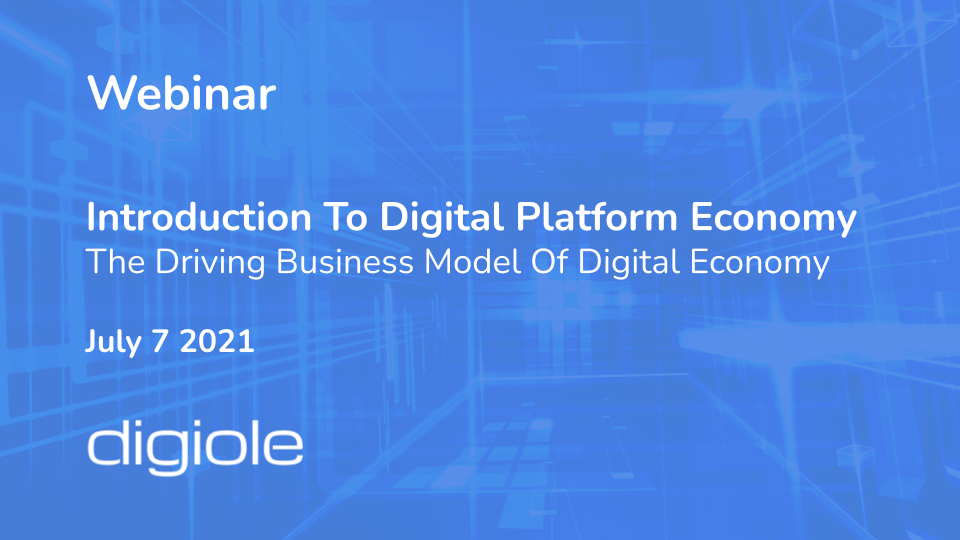
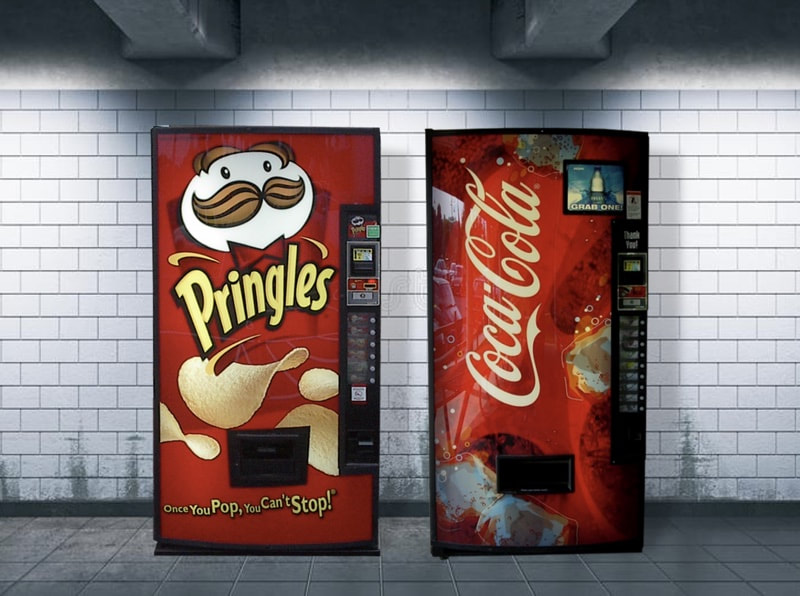
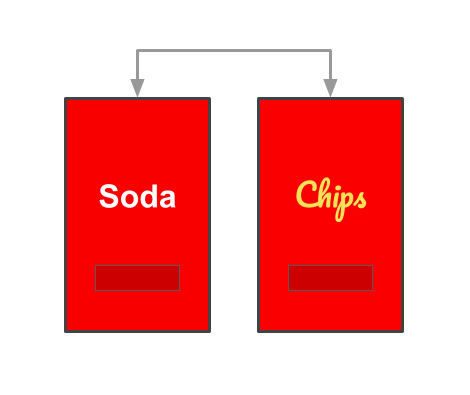
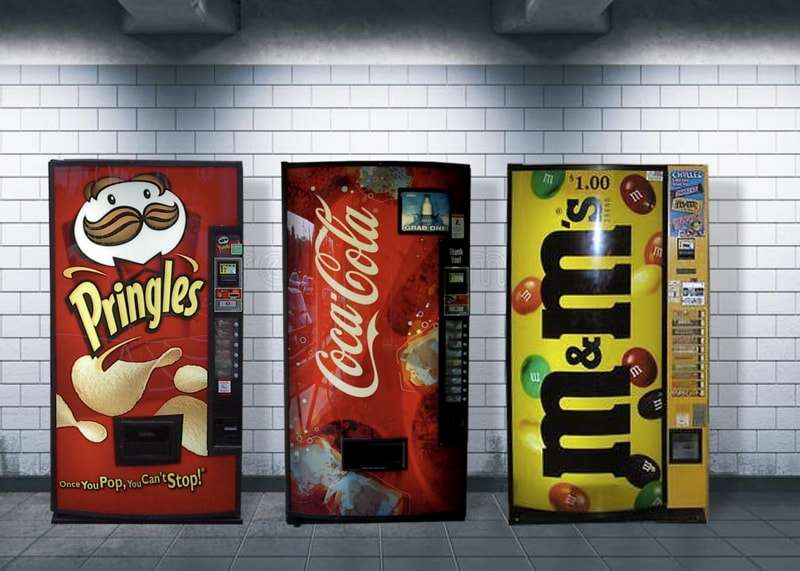
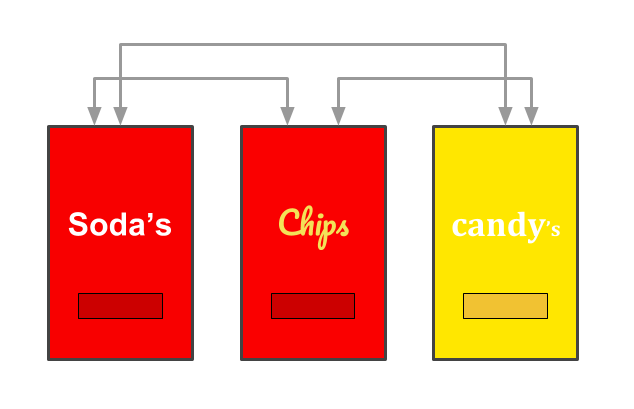
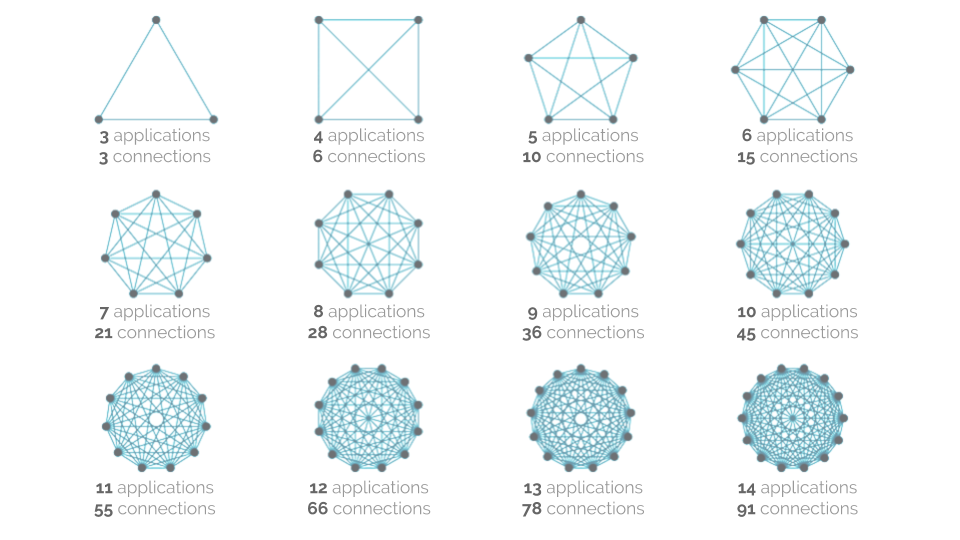
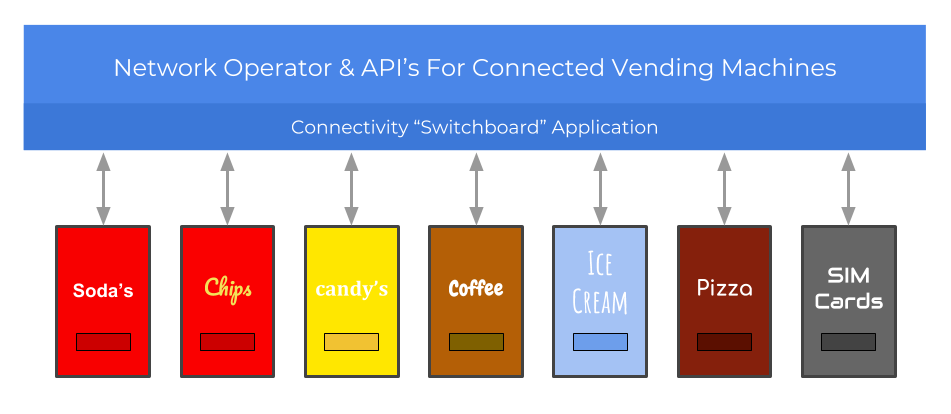

 RSS Feed
RSS Feed